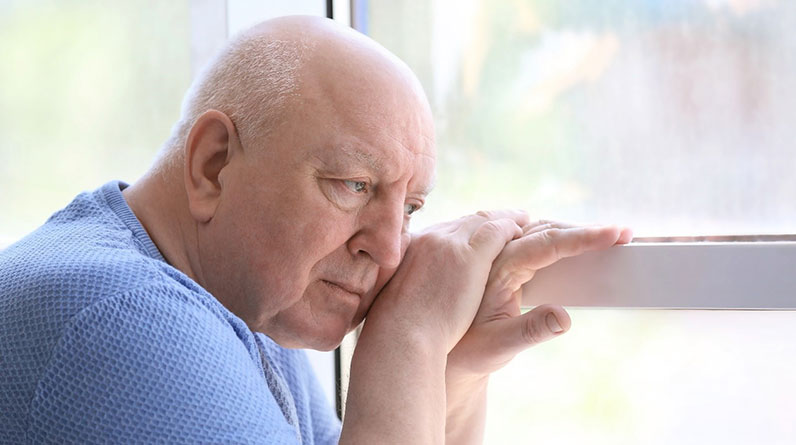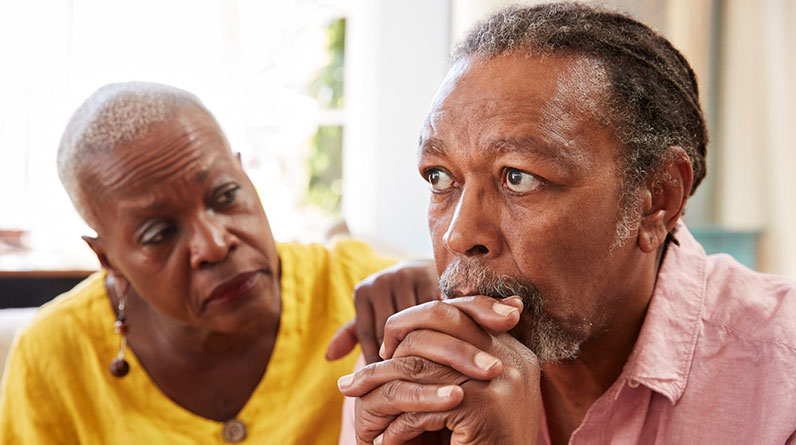
Mental Health
As people age, they often face a variety of challenges that can have a significant impact on their mental health. These challenges can include physical health issues, social isolation, and financial difficulties.
As a result, many seniors may experience mental health issues such as depression, anxiety, and early-onset cognitive decline. Seniors may be at increased risk for mental health issues due to the loss of loved ones, changes in living situations, and other age-related factors.
The growth of mental health among seniors is a significant concern that should be addressed. Left untreated, mental health issues can have serious consequences for seniors, including decreased quality of life and increased risk of physical health problems.
In what follows, we will explore the prevalence of mental health issues among seniors and discuss strategies for addressing this growing problem. We will also highlight the importance of recognizing and addressing mental health issues in this population, providing resourceful information on the subject.
Depression In Seniors
Depression is a common mental health disorder seen in people of all ages, including the elderly, impacting more than 19 million individuals annually in the United States alone. Of that population, 2 million are those ages 65 and older.
Symptoms seen are sadness, hopelessness, and loss of interest in activities that were once enjoyable. Elderly individuals may experience depression for a variety of reasons, such as the loss of loved ones, physical health issues, or the challenges of aging.
The symptoms of depression in the elderly can be similar to those seen in younger individuals, but they may also manifest differently. Elderly individuals with depression may have trouble sleeping, experience changes in appetite, and feel fatigued or sluggish. They may also quit doing hobbies and activities that they once enjoyed and may have difficulty concentrating or making decisions.
It is important for elderly individuals to seek help for depression, as it can have serious consequences on their physical health. Left untreated, depression can lead to an increased risk of medical conditions such as heart disease and stroke, and a shortened lifespan can be the result. It can also lead to increased social isolation and a decline in overall quality of life.
By addressing depression at the beginning stage, elderly individuals can improve their overall quality of life and help maintain their independence for as long as possible.
Types of Depression In Seniors
While clinical depression isn’t part of the normal aging process, and although aging isn’t a risk factor for depression or any other mental health condition, seniors are still at risk of developing severe depressive disorders.
The following are four common types of depression that seniors often experience.
Major Depressive Disorder (MDD)
MDD is a type of depression is described by ongoing sadness and loss of interest in activities that were once enjoyable. This can interfere with an individual’s ability to carry out their daily activities and can lead to other physical and emotional problems.
In the senior population, MDD may be more common due to the natural changes that occur as people age, such as the loss of loved ones, physical health issues, and changes in lifestyle.
Persistent Depressive Disorder (PDD)
Also known as dysthymia, PDD is a type of depression that is characterized by a long-term, chronic low mood. This can interfere with an individual’s ability to function and can lead to indifference toward previously desired goals.
In the senior population, PDD may be more common due to the many normal changes that can occur as people age, such as retirement, physical health issues, and the loss of loved ones.
Substance/Medication-Induced Depressive Disorder
Substance/Medication-induced depressive disorder is a type of depression that is seen in individuals that use certain drugs or medications. This often is the result of substance-related side effects or possibly drug-related withdrawal.
In the senior population, Substance/Medication-Induced Depressive Disorder may be more common due to the increased use of medications as people age, as well as the potential for substance abuse.
Depressive Disorder Due to A Medical Condition
This is a type of depression seen in individuals who have a chronic medical condition. This can be due to the physical symptoms of the condition, the treatments for the condition, or the psychological impact of living with a chronic illness.
Seniors may be more likely to develop this condition due to the increased occurrence of chronic medical conditions as people age.
Treating Depression in the Elderly
There are effective treatments available for depression in the elderly. These can include psychotherapy, medication treatment, lifestyle interventions, or a combination of the three.
It is important for elderly individuals to work with their healthcare providers to find the right treatment plan for them. It is also important for loved ones to provide support and encouragement and to be on the lookout for signs of depression.
The following is a summary of the available treatment and management protocols for elders with depression:
Psychotherapy
Psychotherapy is a type of treatment that involves communicating with a trained mental health professional in order to understand better and manage one’s thoughts, feelings, and behaviors.
This type of therapy can be effective in treating depression in the elderly by helping them to make adjustments of thought patterns and behaviors that may be contributing to their condition.
Medication
Medication, such as antidepressants, can also be an effective treatment option for depression in the elderly.
These medications work by altering the levels of certain brain substances, such as serotonin and norepinephrine, which have been identified as important factors in the regulation of mood.
Lifestyle Interventions
Lifestyle interventions, such as regular exercise and social support, can also be beneficial in the treatment of depression in the elderly.
Exercise has been shown to improve mood and reduce the symptoms of depression in some individuals, and social support can provide a sense of connection and belonging, which can be beneficial for mental health. Engaging in activities that are enjoyable and personally meaningful can also help to improve the mood and overall well-being of seniors.
Final Thoughts
With several causes of depression, including stress, social isolation, loneliness, and even alcoholism, such a condition remains prevalent among the senior population.
To combat this growing issue, elders require an immediate and reliable social circle in combination with resources to combat mental turmoil effectively. If approached viably, elders can continue to enjoy their golden years and remain positive, motivated, and content.
